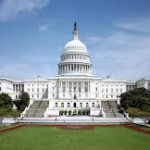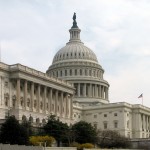 We all know at least one: A grandfather, mother, friend, or sibling. These folks have served our nation, committed themselves selflessly for the preservation of American ideals and have sacrificed their health and well-being to bring folks on the home front a sense of security and an enjoyment of peace in their daily lives.
We all know at least one: A grandfather, mother, friend, or sibling. These folks have served our nation, committed themselves selflessly for the preservation of American ideals and have sacrificed their health and well-being to bring folks on the home front a sense of security and an enjoyment of peace in their daily lives.
Yet American Military Veterans are also a segment of our population that, aside from the tributes and parades adorning Veteran’s Day, are often forgotten in the daily routine. And yet there is so much we stand to learn from our women and men in uniform that greater attention, love and care may help to surface.
We stand at a threshold of American military return from overseas as we wrap up our dealings in Afghanistan. What we take away from the last ten years of war must be a growing awareness of and response to the tragedies of war and its cost on the bodies, minds and spirits of these folks that battled the threat of extremists on the front lines. We are facing the return of a veteran population that will bear the scars and burden of these years of fighting. How will their struggles on their return to the United States become our struggles?
National Public Radio reported a shocking figure last week: there are twenty-two deaths from suicide amongst the veteran population every single day. In the wake of each of these deaths, is a line of family, friends, colleagues and acquaintances left questioning why, after all of the warfare, such a tragedy must befall this person.
With 23 million veterans in our nation, we must think everyday how to successfully bring these people back into civilian life. With such a sizable group making up 8.1 percent of our population, it is no wonder that so many go without care or face incessant bureaucracy and an endless paper chase. How can we possibly balance the budget and improve our care for veterans? Something must be altered.
Returning our soldiers to American soil and having them work and spend their money stateside is a start. Our assets must be restored and retained. Whether through border security or disaster relief, there is no shortage of useful efforts our military could engage in here in the United States. A smaller, more dynamic military could be a corresponding solution. This would boost the quality of care for veterans over time as more resources could be devoted on a per capita basis. Tax and entitlement reforms would also provide savings to the federal government that could allow us to focus more on the promises we have made to those who have served our nation.
Today we thank the veterans of our nation. Let us thank them equally tomorrow. Let us thank them by remembering their service not only by providing them the care they need to deal with the trauma of warfare, but also by being cognizant of the true losses of warfare and the true costs of war’s aftermath. Let us act and vote accordingly.








